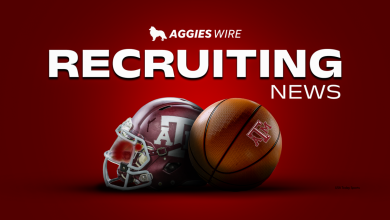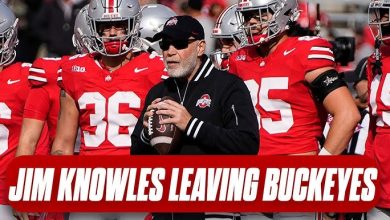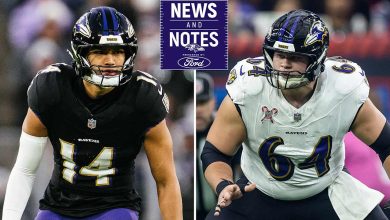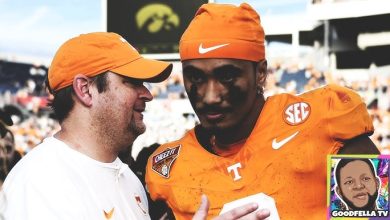What is the current status of Wisconsin’s conflict with former defensive back Xavier Lucas and the Miami Hurricanes?
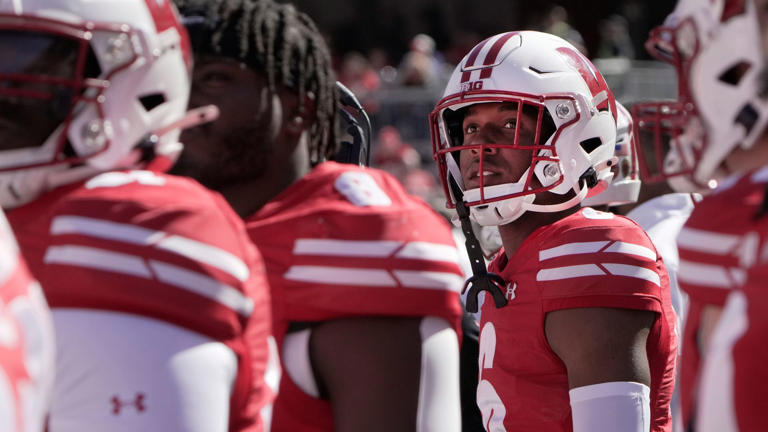
The ongoing conflict between the University of Wisconsin and Xavier Lucas, a former defensive back who transferred to the University of Miami, has garnered significant attention in the realm of collegiate athletics. This case revolves around multiple issues, including player autonomy, the power of NIL (Name, Image, and Likeness) agreements, transfer protocols, and the legal complexities arising from these new dynamics in college sports. To understand the current status of this situation, it is essential to look at its background, the dispute’s development, the legal and ethical questions involved, and potential consequences for college football as a whole.
The Background of Xavier Lucas’s College Career
Xavier Lucas is a talented defensive back who made a name for himself as a four-star recruit at American Heritage High School in South Florida. Known for his speed and athleticism, Lucas joined the University of Wisconsin’s football team as a highly anticipated recruit. Over the course of his first season, Lucas made an immediate impact, with analysts and coaches alike praising his performance. According to Pro Football Focus, Lucas was one of the highest-graded true freshman cornerbacks in college football, showcasing his potential to be a future star.
Despite his impressive early contributions, Lucas’s time at Wisconsin was cut short. In December 2024, Lucas announced his decision to enter the NCAA transfer portal, citing personal reasons for the move, specifically his father’s health issues. His decision to transfer was not entirely unexpected, as college athletes frequently switch institutions for a variety of reasons, including playing time, coaching changes, and personal matters.
However, what followed was far from a straightforward transfer process. Unlike many student-athletes, Lucas’s situation was complicated by his signing of an NIL agreement with Wisconsin, which would play a pivotal role in the subsequent conflict.
The Role of NIL Agreements in College Athletics
NIL agreements have become a central issue in college sports since the NCAA began allowing athletes to profit from their name, image, and likeness in 2021. These agreements have created new opportunities for college athletes, but they have also introduced new legal and financial complexities. For the first time, athletes can sign sponsorship deals, receive compensation from social media, and monetize their image through various channels.
In Lucas’s case, his NIL agreement with Wisconsin included a two-year revenue-sharing agreement that was designed to capitalize on his potential as a future star. The terms of this agreement gave Wisconsin the rights to use Lucas’s NIL for the duration of his commitment, and as part of the agreement, other institutions were restricted from approaching Lucas about NIL deals during his time with Wisconsin.
It was this agreement that led to complications when Lucas decided to transfer to Miami. Wisconsin contended that Lucas could not simply leave the university without fulfilling the terms of his NIL contract, which was seen as binding under the terms of their agreement. They argued that the university had significant financial commitments tied to Lucas’s NIL and that it had rights to his name and likeness for the duration of his contract.
The Dispute: Wisconsin’s Legal Stance vs. Lucas’s Transfer
The dispute escalated when Wisconsin refused to enter Lucas’s name into the NCAA transfer portal, which would have allowed him to transfer to another institution. Instead, Wisconsin insisted that Lucas honor the terms of his NIL contract and stay at the university. This refusal to facilitate the transfer was based on their argument that Lucas had made a legal commitment to Wisconsin through the NIL agreement, which restricted his movement.
Lucas, however, and his attorney Darren Heitner, refuted Wisconsin’s claims, stating that the NIL agreement was not finalized. They contended that the agreement had not been executed properly and, furthermore, that the terms of the deal were contingent upon his enrollment in classes for the spring semester of 2025. Since Lucas had unenrolled from Wisconsin in time to transfer, Heitner argued that no payments had been made to him under the NIL deal, which effectively meant that he was not bound by it.
Heitner’s arguments placed an emphasis on the autonomy of student-athletes and their right to transfer freely, particularly when the NIL agreement had not been fully activated. Additionally, Heitner pointed out that NCAA rules allow athletes to unenroll and transfer without being placed in the portal, which Lucas did in good faith under the belief that his transfer was in accordance with NCAA guidelines.
Allegations of Tampering and Miami’s Role
Wisconsin’s allegations did not stop with Lucas’s refusal to comply with the university’s demands. The university also accused the University of Miami of impermissibly contacting Lucas prior to his decision to transfer. In college athletics, tampering occurs when an institution contacts an athlete who is under contract with another school in an attempt to recruit them away from their current program.
Wisconsin claimed to have “credible information” suggesting that Miami officials had communicated with Lucas before he entered the transfer portal. Such actions, if proven true, could be considered a violation of NCAA rules regarding recruiting, and could result in sanctions for Miami, including possible loss of scholarships, recruiting restrictions, or probation. Miami, however, strongly denied any wrongdoing, with Heitner and the university asserting that Lucas’s decision to transfer was driven by personal factors and was not influenced by Miami’s overtures.
Miami’s position was clear: Lucas made the decision to transfer independently, without external pressure. The university maintained that no rules had been broken and that the transfer was fully compliant with NCAA regulations.
Legal and Ethical Implications
The dispute between Wisconsin and Lucas brings to the forefront important legal and ethical issues in college athletics, particularly regarding the new world of NIL agreements. At the core of this conflict is the question of whether NIL deals can be used to restrict a player’s freedom to transfer or change schools. Lucas’s situation challenges the traditional model of college athlete contracts, raising concerns about the power institutions wield over student-athletes and whether they can impose binding agreements that limit player mobility.
Legal experts have weighed in, suggesting that NIL agreements, as they currently stand, may not have the legal standing to prevent a player from transferring. Since the NCAA’s ruling on NIL rights was designed to allow athletes to profit from their names and likenesses, restricting a player’s ability to transfer could be seen as an overreach.
The ethics of NIL agreements also come into play. While these contracts have provided athletes with new opportunities for financial gain, they have also introduced power imbalances between institutions and players. Critics argue that universities may use these agreements to lock players into long-term commitments, which can ultimately limit their autonomy. Lucas’s case may set a significant precedent for how future NIL agreements are structured and whether players can be tied down by such deals.
Potential Outcomes and Long-Term Impact
The outcome of this case could have wide-ranging implications for both players and institutions in the world of college sports. If Lucas’s transfer is upheld, it would affirm the idea that student-athletes have the right to move freely between institutions, even if they are under NIL contracts. This could embolden other athletes who are in similar situations, potentially leading to an increase in player mobility and the rise of new precedents for handling NIL agreements.
On the other hand, if Wisconsin’s claims are upheld, it could signal a new era where universities are able to enforce strict contractual terms on athletes, potentially leading to more restrictive practices in recruiting and transfers. The broader ramifications for NIL agreements would likely lead to greater scrutiny from both the NCAA and legal bodies, as policymakers will need to determine how to balance the interests of institutions, players, and outside companies involved in the NIL space.



